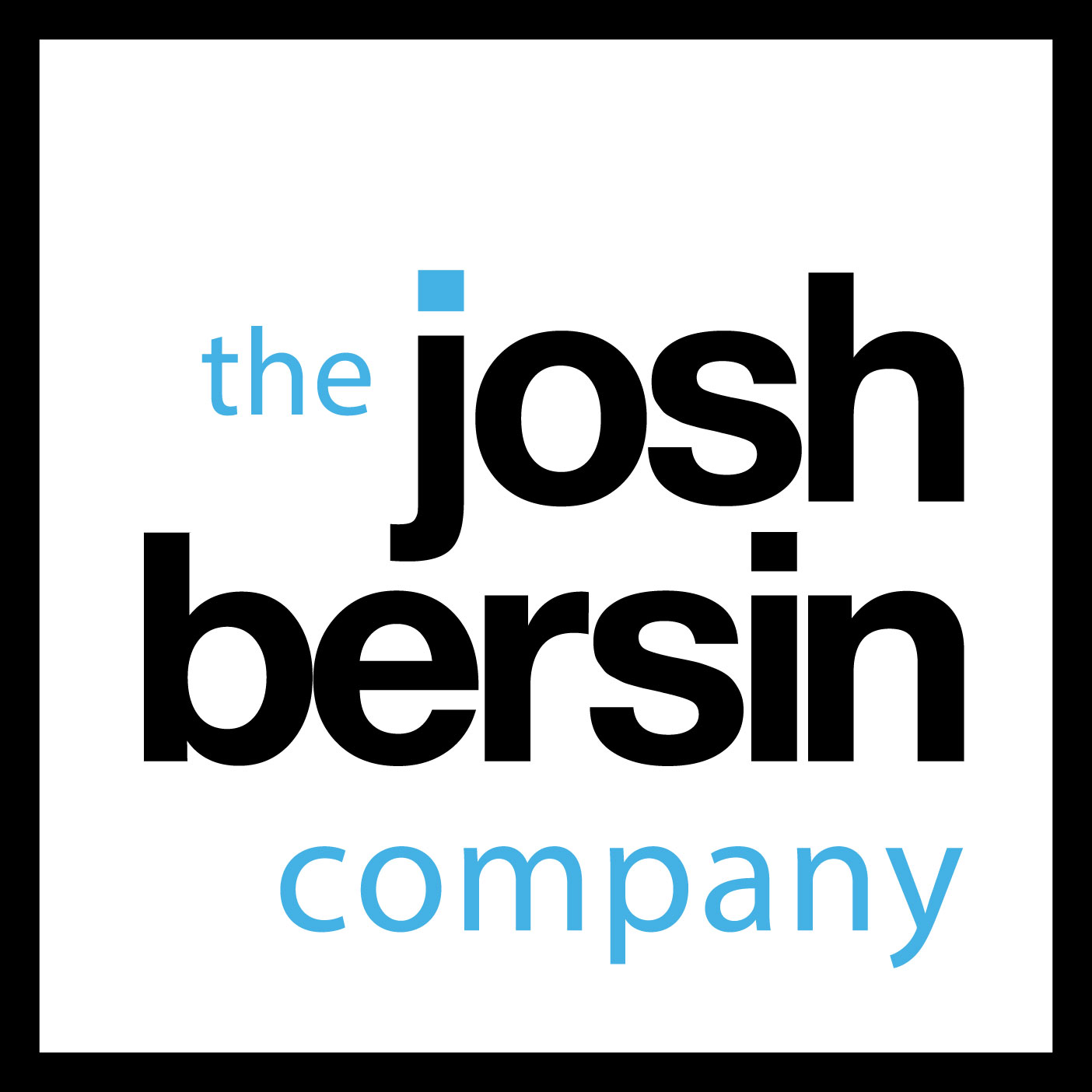Episode Transcript
Speaker 1 00:00:12 I think we're at a point where employees are simply saying to their employers, I'm fed up and I simply can't take it anymore. And I know that sounds like a funny way to start a podcast, but that's basically where we are in the job market. As we get ready for our irresistible conference next month in LA, where I'll be talking about what this all means and how you can create an irresistible organization. I want to give you some really important things to consider, and that is employee experience has moved in a very surprising direction. A lot of the things that matter now are not the things you thought about in the past. Historically, the employee engagement industry was built around IO psychology and Maslow's hierarchy and the need to provide safety and careers and growth and reasonable pay and purpose and mission to employees and all of those things absolutely do matter.
Speaker 1 00:01:06 We know that they've been proven statistically over and over and our employee experience research proved it as well. But even if you do all of that, well today, you're probably gonna suffer turnover. Apple is now looking at a union. Starbucks has unions in a bunch of its stores. Amazon has unions brewing on most of its distribution centers, and it's going to move into other industries as well. I wouldn't be surprised to see it in other retailers. Why employees simply can't take it anymore. And let me give you a sense of the data last week or the week before Mercer announced some research from their global human capital trend study and found that in 2022 81% of employees feel at risk of burnout. The same week, Microsoft introduced a study that shows that in 2022, two years plus into the pandemic, the average employee is working 8% more hours than they were before the pandemic.
Speaker 1 00:02:07 That's almost a day a week. That's getting up in the morning doing zoom calls, doing meetings, dealing with no time for lunch, working into the afternoon, working into the evenings, picking up stuff on weekends. Oh, and by the way, the boss just said, we want you back in the office two or three days a week. So add a commute to that. And $5 or $6 a gallon for gas. Is it any wonder? People are a little bit burned out. It's getting pretty difficult to deal with in the same study by Mercer. I wanna point out a couple of other interesting statistics. They asked employees more than 10,000. Actually. I think it was close to 11,000 employees, a bunch of other things. Do you wanna work fewer hours? 25% said, yes. Do you like the company? You're in 16% said, I want out that's one in six, 15% said I'm changing my profession because maybe I don't even wanna do the kind of work I'm doing now.
Speaker 1 00:03:04 And 14% said, you know, I don't even wanna work anymore. I mean, and that sounds kind of crazy, but that's how bad people feel. Just last Friday, Cathy and I were on the phone with the ch O of a large healthcare provider. And we've been doing a lot of research into healthcare. And I think the healthcare industry is maybe the leading edge industry in understanding these issues. You may think healthcare is not a very sophisticated HR function, but actually it's the most sophisticated of all in many respects, nursing jobs and care practitioners who are mission critical jobs, obviously in healthcare are under enormous amounts of stress in their hospital network. She said, we have nurses that make a hundred to $150,000 a year. We're competing with positions in pharmaceutical companies that might pay 30% higher with no patient interactions. The patients come into the hospitals upset cuz they don't wanna wear a mask.
Speaker 1 00:03:58 They yell, let the nurses. Sometimes they physically accost the nurses. The nurses are going home at night to take care of their kids. They don't have enough money for childcare. Maybe they don't even have childcare at home. So their kids are home or they're going to school or they're not going to school. They have student debts. It piles on piles on piles, on the turnover rate in the healthcare industry. In some nursing populations is 60 to 70%. And by the way, that's the same kind of numbers Amazon is seeing too. The world of work has just gotten very difficult. And one more thing before I just pile on a little bit more new research from the Edelman trust barometer shows that citizen trust in society in government, in media is at an all time low. In fact, the thing that shocked me the most is only 40% of Americans believe their life will be better five years from now than it is today.
Speaker 1 00:04:58 So here we are as employers, as managers and HR people as really well intended professionals, trying to build a great experience at work. And these are the stresses that our employees are facing. This is not your father's employee engagement survey. This is something different. This is a massive amount of new issues with pay rewards, flexibility, healthcare, child, mental health, physical health, spiritual health, and just a feeling of caring that employees really, really need now for most of us. And certainly for me, I was expecting 2022 to be a pretty good year. The pandemic is winding down. We were gonna have a summer where we could go on vacation. The economy was doing reasonably well and it still is. Let's kind of look at this as the roaring twenties, when we all go back to work and have a good time. Well, now we have a war in Ukraine.
Speaker 1 00:05:54 We have inflation close to 9%, which is unprecedented. You turn on the news. The stock market is starting to crash. Interest rates are going up and people are feeling this. So what do you need to do? Well, I don't wanna give away all the secrets now because I'd like you to come to our conference and read some of our research about this. But the bottom line is that your role as an HR pro as a business leader, as a manager, is to make work better for your employees. Because if you lose them, it's gonna be hard to replace them. And you're probably trying to hire or develop some new skills and new roles in your company. And all of these, what I call surprising factors that impact the employee experience are here. And they're real. They're not just something you read about in the New York times.
Speaker 1 00:06:42 They're actually true. And your employees are probably talking about them quietly with each other, but maybe not to you. So the whole dimension of what we deal with at work is different. Now I know we don't have a lot of time on this podcast at get into details, but let me summarize. And this is what I'm gonna talking about at our conference is there's really five things you have to consider. Number one is the design of work and jobs. Most of the time companies have union problems or labor relation problems or massive turnover issues. It's because of the job design, the jobs are harder than you realized they haven't been designed for people they've been designed for customers and the employees are crying to keep up. We looked at Starbucks the other day, the average Starbucks cup of coffee has 50 options, five zero, and the employees in Starbucks who probably a minimum wage or slightly above and are basically well paid for the roles they're in have to deal with that steady stream of customers coming in.
Speaker 1 00:07:49 They also have to deal with mobile phone orders and internet orders that are coming in with people walking into the store, expecting 'em to be available. They have drive-through windows and, and an inordinately complex series of other products to stock and take care of. And the stores have not been staffed well because it's hard to hire people. And so employees are not happy because the customers are not happy. Why are the customers not happy? Not because the employees aren't well intended. It's because the job design the job design of a Starbucks store, probably wasn't designed for this much complexity. So that's number one, you have to get involved in co-designing better jobs, better roles, better experiences with your employees. We just finished a massive study of organizational design, which you can read about on our website or join a our membership program. And one of the things that comes out of that is only one in 10 organizational design projects involve the employees themselves.
Speaker 1 00:08:50 Those are the ones that succeed. The employees should be working with you and their line managers on making work easier, redesigning the operations and allowing them to deliver the products and services that you wanna sell to customers. And probably simplifying the products and services as well. We made things quite complex during the pandemic, as we bent over backwards to take care of all the issues that customers had numbered two is the issue of learning skills and growth. I don't have to tell you how important this is. When somebody leaves a job, they leave for stress. They leave for overwork. They leave for pay. But the number one reason they leave is they just weren't going anywhere. They didn't see a future. And when 60% of Americans think lie, life is getting worse and not better. They're expecting your company to make their life better. That means giving them new skills, giving them new opportunities, giving them new jobs, giving them developmental assignments.
Speaker 1 00:09:47 Somebody patting them on the back and saying, what a good job they're doing, giving them some positive feedback. All of that makes a huge difference in their experience at work. The third area to look at is the whole issue of health. We call it the healthy organization and it's not just physical health and diet and exercise and sleep. It's mental health, it's resilience. It's a sense of belonging. It's being able to take care of your kids. It's having enough free time, time during the day. So you can rest. It's knowing that if you do make a mistake or you do fall behind people, aren't gonna jump down your throat and blame you relaxing the performance management process. By the way, it's interesting how performance management has been almost completely ignored during the pandemic because most companies are performing very high rate without making a big deal about performance management.
Speaker 1 00:10:41 I think it's fair to say performance management has been a broken process for years and companies do a lot of different things with it. All of those are issues that have to do with building what we call the healthy organization. And one of the themes of building a healthy organization is what we call human centered leaders, ship teaching leaders, teaching managers, teaching supervisors that taking care of people and empathizing with people is probably the number one job they have. Number four, the work culture, the work culture, the experience at work, the DEI experience, the fairness, the equity, the equity, the rewards are critical to your success in this environment. Yes, there is inflation. Yes, you have to pay people more money. In fact forward thinking companies like Cisco and many of the tech companies have either eliminated or re-priced options done away with annual bonuses and simply rate based pay people want more money and they want it now.
Speaker 1 00:11:42 Especially young people. They're not willing to wait for a presumably valuable stock option. When the stock market is dropping. When they see the gas prices at $6 in a GA, by the way, they're at $7 a gallon where I live. So you have to raise pay. You have to be comfortable with the fact that the benefits are gonna be more generous. And the CFO's just gonna have to deal with the fact that the margins might be a little bit lower, but ultimately people are your product. So it's worth investing in the final area of focus. You is in the area of purpose, mission, and trust of leadership. You know, as I go back and I look at that Edelman data again, and I realize the role that we play in people's lives, we are now as business and HR, people playing one of the most important roles in our employees lives.
Speaker 1 00:12:31 We are the safe, trusted entity in their daily life. Yes, maybe they don't like the political stuff they're dealing with. Maybe they don't trust the media. Maybe the government hasn't fixed the roads in their street. Maybe they're not getting enough money for social security. Maybe they're under mental stress because their kids are not doing well in school. It could be all sorts of things, but their job, their management, their leadership should be there to take care of them. And this sounds like altruism. And it sounds like it's not Milton Friedman's model of business, but let's just be honest here. Every business is dependent on people. The industry we're in the culture, the real society we're in is this service economy, even tech companies and manufacturers and trucking and distribution companies are in the service business. If you don't have a trusted listening relationship with your employees, you're probably not able to grow.
Speaker 1 00:13:28 So those are the five things to think about work design and job design, growth, learning, and skill, the ability to create health in all of its aspects, fair pay and rewards and trust. And those five things. We're gonna talk a lot about at our conference. In the end of may. Now I am not a pessimist. I'm actually optimist by nature. And I would venture to say that a lot of the pain we're feeling right now will subside over time, but it doesn't happen by itself. Each of us as business, people, as managers, as supervisors, as HR people, we have an opportunity to do our role in this mission. One of the things I also found out by the way, and somebody did an analysis is said that 98% of age, our professionals are burned out too. So I would suggest one thing you can do is take good care of yourself. Take care of your HR team. Spend a little time, keeping up on what's going on in the profession. Give yourself a little bit of time to talk to your peers and do something good for your employees. God knows they need it. And we're all in and on people more than we have been in probably decades in the past, come to our conference. Irresistible May 23rd through 25th at the beautiful USC campus in Los Angeles. And I promise you will be inspired by how to build
Speaker 2 00:14:52 An Iist organization.


